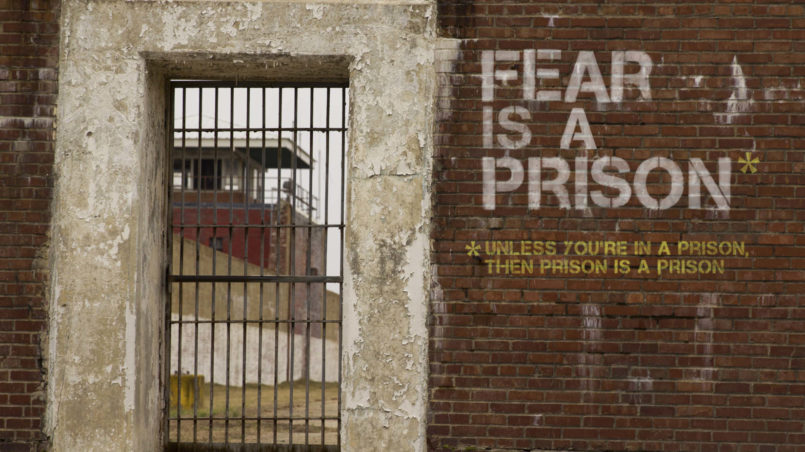Trauma and its Consequences

Traumatised people usually carry their suffering very visibly with them – they are constantly ill and lack energy, anxious and overwhelmed and, as a result, often suffer from addictions, which are also reflected in their bodies. Their life stories are dramas of the endless repetition of eternally identical mistakes, of loneliness, of searching in all the wrong places. Due to their reduced capacity, they can usually only work part-time, which has a monetary impact.
What is normal for others (perfidiously, this also includes professional help), they often cannot afford and consequently they end up isolated. They are nervous and unfocused, they act asynchronously with everyone else and spread a bad mood with their fatalistic worldview and their silent cry for help. Why can they not succeed in overcoming what they have experienced when our everyday experience tells us that time heals all wounds?
What is traumatisation?
Trauma is processed differently than any other memory
It does not fade but remains encapsulated fresh and unchanged in our minds. Paradoxically, however, it is sometimes inaccessible to conscious thought and instead appears only in dreams or under hypnosis. Often the memory will suddenly be triggered by an external stimulus and begin to run like a movie, complete with all the feelings of the first experience, without any control on the part of the person concerned.
By that token, talking about the experience does not bring any relief, but instead is very likely to trigger such a flashback which will then act as a refresher, further deepening the suffering. Trauma is stored in a part of the brain that is inaccessible to the intellect, so knowing that the danger is in the past cannot mitigate the horror.
Worse still, deep traumatisation changes the connections in our minds so effectively that the perception of time, one’s concentration and ability to learn are seriously impaired.
What are the consequences?
Affected people often seem stuck in their lives and repeat the same mistakes. With the knowledge of the disturbed connections between intellect and feeling (which are equally important in storing and evaluating new experiences), this puzzle becomes more understandable. So it is not surprising that trauma victims often suffer from memory gaps or confuse the temporal sequence of events.
Especially affected is the ability to relax. Constant involuntary hypervigilance (monitoring the environment for possible dangers) drives affected persons to complete exhaustion over the years. Since the feeling of security never sets in, the everyday world (which cannot be reconciled with the sense of threat) soon appears unreal and scenery-like. The only thing that still feels true is a terrible memory.
The consequence frequently observed is detachment from reality, the existence as a shadow of the original person. All ties to carefree fellow human beings who seem to live in a completely different world fade. This leads to a downward spiral mentally, physically and economically – a spiral from which the afflicted cannot escape on their own.
How does a post-traumatic stress disorder develop?
The danger of death without the possibility to take action
Natural disasters, assaults, hostage-taking, train accidents and the like are examples of situations that are commonly known to cause trauma. Depending on how resilient a person is and how their personal experience is shaped (trapped, buried, witnessing injury to others, etc.) and whether there was any possibility to influence the situation, not every person stores an extreme situation in that particular way which will lead them to suffer from the psychological fallout for years.
In short, disasters do not necessarily lead to post-traumatic stress disorder (PTSD).
Rape
As cruel as the experience itself is, the more agonizing aspect of sexual violence is the immutability with which this ultimate attack on a person’s privacy brands them. All integrity, the sense of sovereignty over one’s own body, is taken from victims. Sexuality and terror are firmly interwoven and no longer allow physical closeness.
War effort
“War tremble“, a condition that has all the classic symptoms of trauma, was once interpreted as a weakness of character and cowardice. Soldiers were rigorously punished or even executed if they literally could not stand in terror. Later generations merely sent such soldiers home and left them to their fate (unemployment, alcoholism, etc.). One could not admit that a large part of the returnees would be faced with the ruins of a life they would never be able to pick up again – who, after all, would go to battle with such prospects? And, equally politically charged: who should pay for the resulting medical expenses if the war effort were to be acknowledged as a definite reason for psychological problems?
Thus, this concession was postponed as long as humanly possible and until the statistics showed the context simply irrefutably – even now it is argued that a psychological condition must pre-exist, as a robust, healthy character can ultimately handle the situation.
Wake up during an operation
The gruesome experience of being unable to move or communicate (through muscle-paralyzing medication) while suffering terror and pain is usually completely repressed at once. Frequently, the event is expressed first by a depression inexplicable to the patient. Only much later, if at all, does a clear memory come to light – often only in the course of a psychotherapeutic treatment.
Probably due to this temporal shift, the severity in consequences of this frighteningly common complication was entirely underestimated.
Birth trauma
Those born before the introduction of “rooming-in” were snatched from their mother, exposed to all sorts of loveless procedures in painfully bright light and then – worlds away from the vital safety – taken to another room. This not only affects the bond between mother and child but also represents a deeply burnt traumatisation.
Incidentally, the described experiences of UFO abduction victims have such obvious parallels to the processes in a hospital birth that the sudden return and thus the immediate re-experiencing of a traumatic memory is very likely here.
These punctual traumas can have a restrictive or even devastating effect on the further quality of life of a person affected without help. The situation looks even worse if the trauma cannot be attributed to any particular event, but a person has been deprived of any sense of security over the course of years. Not only the more protracted therapy, but also the difficulty of a correct diagnosis and not least the reactions of the environment complicate the course. The continuation of this article will cover this topic in more detail.
Credits
| Image | Title | Author | License |
|---|---|---|---|
 |
12435213794_e1419ac4a5_o- | Lorie Shaull | CC BY-SA 2.0 |
